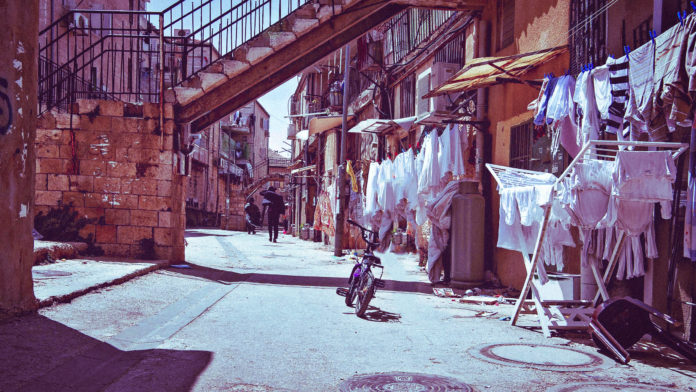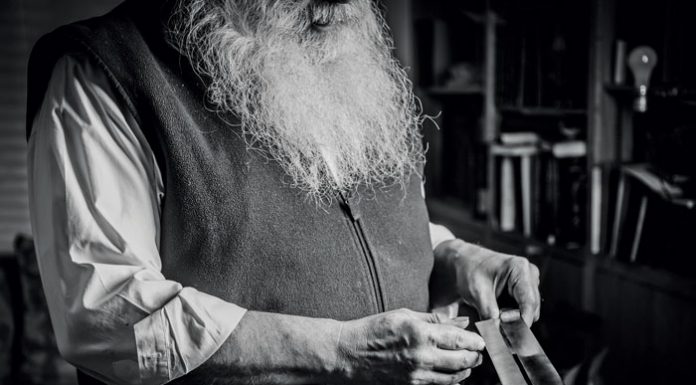Chana Chovav-Maizel of Beit Hakerem, Jerusalem, has spent nearly six decades as a real estate attorney and has represented religious institutions and yeshivos as part of her career. When she first began practicing law 60 years ago, however, she had no plans to specialize.
“I grew up in Tel Aviv in the 1930s and 1940s in a Zionist family. My childhood neighbor was a lawyer, and I was taken in by her career choice. I wanted to be like her and decided to become a lawyer when I grew up. As a young adult, I enrolled in university to study law and to actualize my dream.”
Back in the 1950s, most lawyers didn’t specialize in a particular area. There were fewer lawyers and also fewer laws, and specializing wasn’t necessary. Chana Chovav-Maizel learned general law, and in order to complete her accreditation, she interned in the office of Attorney Emanuel Mack.
In that office she worked on what was no doubt one of the most fascinating cases of her career—the Yossele Schuchmacher case.
As is well known, Yossele Schuchmacher was a six-year-old child of secular parents who immigrated from the Soviet Union to Israel. Once there, they sent him to live with his maternal grandparents. When it was time for Yossele to go home, his grandparents, Breslover chasidim Rabbi Nachman and Miriam Schtroks, refused to send him back on the grounds that Yossele’s parents were planning on taking him back to the Soviet Union, and they feared for his spiritual and physical safety. Yossele was sent into hiding, and the case made headlines around the country.
“Rabbi Schtroks had lost a young son in Russia,” Chana explains. “His son was killed right in front of him by a group of hooligans while he was on his way to cheder. This was why he was also afraid for Yossele’s physical safety. Rabbi Schtroks was willing to do whatever it took to make sure his grandson didn’t return to Russia. Rav Aharon Katzenellenbogen, the leader of the Neturei Karta movement, decided to help him. Rav Aharon was the address for anyone in Meah Shearim who needed help.”
It was Chana’s involvement in this case that served as the starting point for an unlikely connection between the Zionist attorney-in-training and the staunchly anti-Zionist rav.
“When Mr. Mack had a heart attack and was hospitalized, Rav Aharon asked me to go before the Supreme Court for a habeas corpus hearing,” Chana says. “I wasn’t an attorney yet; I was still just an intern, and I told him that I wasn’t allowed to do that, but he wanted me to do it anyway. I went to the hospital to talk to my boss. He told me to speak to the chief justice, explain the situation, and request permission to appear in Mr. Mack’s stead. I was granted permission.”
Working on the case with Rav Aharon was complicated by the fact that he would not enter the courthouse on principle. “He didn’t recognize the State and therefore didn’t recognize its court system either,” Chana says. “I went on his behalf while he stood outside. I listened to what the judge had to say, and then I ran outside to repeat it to Rav Aharon. Then I ran back inside to tell the judge what Rav Aharon had said in response. All during the court case, I kept running up and down the stairs, back and forth. But I was young and had the strength for it. Today I wouldn’t be able to do something like that.
“The state suspected that Rabbi Schtroks knew where Yossele was, but he said, ‘Ich hub zich einge’akshent az ich gei nisht zugen—I decided that I won’t tell under any circumstances.’ He was imprisoned with a warning that he would stay there until he revealed his grandson’s whereabouts. Ironically, Rabbi Schtroks was very happy in prison. He had a personal aide, and he was given food that he could never have afforded at home. But eventually, Prime Minister Ben-Gurion mobilized all of the security forces, and they found Yossele in America.”
After collaborating with Rav Aharon on the Schuchmacher case, Chana found herself deeply impressed by this staunchly anti-Zionist rav. “He was the smartest person I ever met. He loved all Jews, and his anti-Zionism came from his fear that Zionism would destroy klal Yisrael because people would stop keeping Torah and mitzvot. That’s what was really important to him. It didn’t matter if someone was a Zionist or not. He accepted me as I was, even though he knew that I am a Zionist.
“He was like a king in Meah Shearim,” Chana continues, “and anytime anyone had a legal issue, he would tell them, ‘Go to Chana.’”
Through Rav Aharon’s referrals, Chana began to work with the chareidi community. When yeshivos such as Mir and Dushinsky needed a legal representative, he recommended her to them.
As the legal representative for these yeshivos, Chana was often drawn into legal battles involving bachurim who were arrested during demonstrations against chillul Shabbos.
“It went like this,” she explains. “On Shabbos the boys would be arrested, and then I’d come along on Sunday and have them released.
“Here is one fascinating example. The police arrested four students, 18-year-old bachurim who had been arrested on the grounds that they’d been violent at a demonstration. I came to the courthouse to be their legal representative, and the main witness against the boys was a certain police officer.
“I was warned that I’d be unable to break the officer’s testimony, and indeed, he gave very lengthy testimony against the boys. I cross-examined him, and his testimony seemed so trustworthy that I wasn’t sure what else to ask.





















